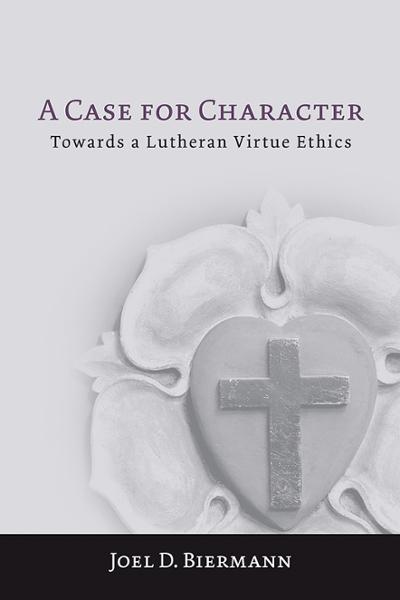 Editor’s note: Concordia Seminary Professor Joel Biermann’s new book A Case for Character is just released this month. In it, Biermann makes the “case” for a genuinely Lutheran contribution to what has been called “virtue ethics.” Below are his thoughts for what inspired him to write the book.
Editor’s note: Concordia Seminary Professor Joel Biermann’s new book A Case for Character is just released this month. In it, Biermann makes the “case” for a genuinely Lutheran contribution to what has been called “virtue ethics.” Below are his thoughts for what inspired him to write the book.
For good reason, Lutheranism has gained a reputation for robust and faithful doctrinal reflection and application. It would surprise few to find solid doctrine and Lutheran together in a single sentence. But it would provoke not only surprise, but also outright suspicion if one were similarly to juxtapose Lutheran and solid character formation and training in virtue. Perpetuating the typical, but dangerously wrongheaded, divide between doctrine and ethics, it is common for people to assume that good Lutherans know a good deal about Christian doctrine, but, shall we say, are somewhat less advanced when it comes to the business of Christian living. Widespread as this idea has become, and true as it may be of some more recent iterations of Lutheran life and thought, it cannot be said of the first Lutherans—and that’s one of the points I try to make in my book, A Case for Character.
It was my personal “discovery” of the world known as virtue ethics and the potential I saw there for meaningful application within Christian homes and parishes that initially drove my work on the book. But, one of the ancillary components of the argument I make in A Case for Character is perhaps one of the more significant contributions—others, at least, have suggested as much. This is the fact that Luther, Melanchthon and the Confessions not only allow but actually encourage the work of character formation and training in virtue—and in quite traditional, that is Aristotelian, ways. While this may strike some as hopelessly self-evident, in a climate of antinomianism and law/gospel reductionism, it is, it seems, a point that needs to be made. Recognizing the extent to which the first reformers readily operated within the world of habituation and formation for the cultivation of character could serve as justification or even catalyst for a renewed interest in such work among Luther’s 21st century heirs. And, from my perspective, that would be an outcome to be celebrated, as it would have direct and tangible benefits for congregations, schools, homes and lives.

Leave a Reply
You must be logged in to post a comment.